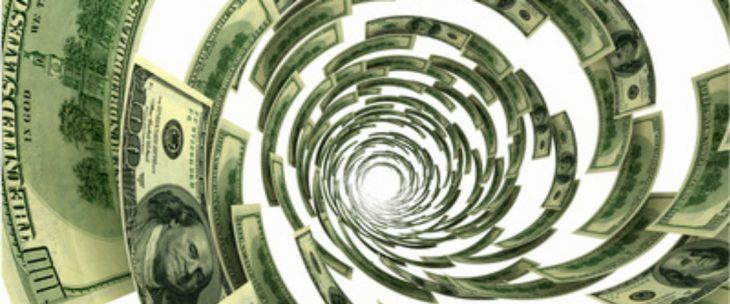Consumers rang up $89.2 billion in credit card charges last year, approaching record level
by March 13, 2017 9:56 am 345 views

The rapid rate consumers are increasing credit card debt continues. Last year consumers charged $89.2 billion on credit, according a WalletHub’s recent report. WalletHub said credit charges in 2016 were $3 billion shy of the record set in 2007, ahead of the 2008 recession and financial meltdown that followed.
WalletHub took its data from a March 7 Federal Reserve report. Using that data WalletHub projects consumers will in 2017 surpass the record debt level by at least $100 billion. Alina Comoreanu of WalletHub said escalating credit credit card charges totaled $60.4 billion in the fourth quarter, the biggest fourth quarter debt increase since 2007.
“Our dismal performance also comes on the heels of three equally foreboding financial feats, appearing to solidify an ominous trend. We set the post-2007 Q3 record last quarter, racking up $21.9 billion in new debt, right after adding a Q2-record $34.4 billion to our tab and recording the smallest Q1 pay-down ($27.5 billion) since 2008,” Comoreanu noted in the report.
WalletHub said consumers are weakening financially, but it’s harder to determine just how long this trend will last or how bad it will get. Important data to watch are charge-offs which were 3.51% in the fourth quarter. That is still historically low and below the 4.18% record set at the end of 2007. Charge-off rates peaked in mid-2010 at 11%.
Debt watchers say lenders have helped fuel the increased credit to borrowers but there will be a tipping point if this continues. The average credit card debt per household rose to $8,377 at the end of 2016, just below the $8,463 consumer households owed ahead of the 2008 recession.
Economists from Wells Fargo said the consumer is in the driver’s seat of the economy and overall consumers are in decent financial shape thanks to low unemployment and modest wage increases in the past two years. The economists said the main difference between consumers today and the recession and recovery is the number of employed. They add that rising home values have also helped boost confidence for consumer borrowing but they are not too concerned about the level of consumer debt.
Average credit scores among consumers also improved last year according to Experian. The national average Vantage score rose to 673 last year, up from 669 in 2015. In Arkansas the average credit score ranks below the nation at 657. Only eight states had lower average credit scores than Arkansas. Georgia was the lowest at 642.
The Federal Reserve reported that January consumer credit increased at a seasonally adjusted annual rate of 2.75%. Revolving credit decreased at an annual rate of 4.5% percent, while nonrevolving credit increased at an annual rate 5.5%. In the fourth quarter of 2016 consumers financed $29.469 billion in new auto loans. The average auto loan is 67 months and the average interest rate charged was 4.9%.
